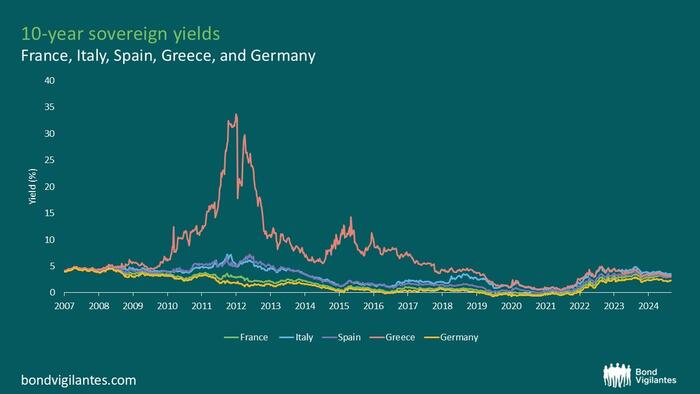In the context of current economic and political challenges, France’s situation has resurfaced discussions surrounding the potential for European fragmentation. As detailed by Robert Burrows, ongoing issues in France, including significant fiscal pressures, political instability, and a rise in populism, pose substantial risks to both the nation’s future and the broader integrity of the European Union (EU). The overarching question is whether France can sustain its pivotal role within an increasingly uncertain Europe, especially given the rising challenges evidenced throughout the continent.
France’s economic struggles are deep-rooted, characterized by prolonged stagnation, elevated unemployment, and a concerning debt-to-GDP ratio exceeding 110%. This level of debt has placed considerable pressure on the French government, limiting its ability to invest effectively in the economy. The stark contrast with the United States, which retains the capacity to raise taxes—and, therefore, increase revenues—highlights France’s precarious fiscal situation. Increased taxation in France may not yield positive outcomes without risking reduced revenues, leaving cuts to public spending as the only viable strategy for controlling deficits. This necessity is complicated further by inflationary pressures including surging energy prices and the ripple effects of the Ukraine war, which have heightened dissatisfaction among the populace, particularly among low- and middle-income groups.
The political landscape in France has become increasingly fragmented, a trend made evident in recent elections where traditional political parties failed to secure a majority. This division has led to a precarious coalition government, primarily dominated by the far-right party of Marine Le Pen. Such fragmentation mirrors societal divides feeding into rising populist sentiments, which challenge the established political order and question France’s alignment with the EU. President Emmanuel Macron has found it increasingly difficult to navigate these political challenges, hampering his ability to implement necessary reforms, exemplified by public protests against proposed reforms in pensions and labor laws.
The implications of France’s internal strife extend beyond its borders, raising critical questions about the future cohesion of the European Union. France and Germany have historically been seen as the twin pillars of the EU; however, the increasing instability experienced by both nations invites scrutiny regarding the EU’s durability. Past challenges, including Brexit and various sovereign debt crises, highlighted vulnerabilities, while recent issues such as the COVID-19 pandemic and the energy crisis further have tested the union’s resilience. Interestingly, the EU’s response to economic difficulties in member states, particularly in terms of fiscal rules, reflects a growing concern that the stability and unity of the EU might be under threat.
Addressing the broader economic context, Europe faces an energy crisis and rising inflation that further exacerbate tensions and strain economies beyond just France. Key economic powers like Germany are also grappling with significant challenges, including weakened manufacturing and fiscal constraints. These conditions place pressure on the EU’s fiscal solidarity framework, and France’s declining fiscal health could complicate efforts to achieve a unified approach to pressing issues such as energy transition and climate initiatives, which require collective political will and financial resources.
If France’s trajectory does not improve, the repercussions could destabilize the EU significantly. The potential decline of France could lead to diminished French leadership in EU policy, creating a vacuum that other member states may struggle to fill. Increased Euroscepticism in France might energize similar movements in other nations, contributing to a broader fragmentation across the EU. This scenario would complicate the European Central Bank’s (ECB) ability to implement coherent monetary policy, as diverging economic situations become increasingly prevalent among member states. As economic and political challenges coalesce, France’s situation will be instrumental in determining the EU’s future cohesion and stability, invoking core concerns surrounding the foundational unity that has characterized the European project for decades.

